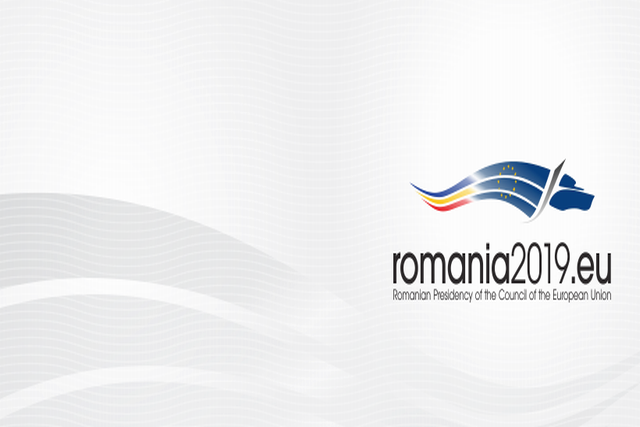Romania’s European semester
Romania has officially taken over the 6-month presidency of the Council of the European Union

Bogdan Matei, 11.01.2019, 15:13
Admitted into the community structures on 1st January 2007, Romania is now holding for the first time the 6-month presidency of the Council of the European Union, which it has taken over from Austria and will hand over to Finland. The EU agenda during this period includes the UK’s leaving the bloc, which is scheduled for March. The basic outlines of the future financial framework for the 2021-2027 period must also be established, as well as a coherent strategy on migration. A total of 257 dossiers have to be debated within a space of only four months, given the start of the election campaign for the European Parliament elections in May.
The official launch of the Romanian presidency of the Council of the European Union on Thursday brought together in Bucharest the President of the European Commission Jean-Claude Juncker, the College of Commissioners, the President of the European Parliament Antonio Tajani and the President of the European Council Donald Tusk. The festivities were hosted by an emblematic building for Bucharest, the Athenaeum. They also included a concert given by the European Union Orchestra. In their speeches, the top Romanian and EU politicians unanimously expressed confidence that the Romanian presidency of the Council of the European Union would be a success.
In a memorable address delivered in the Romanian language, the President of the European Council, the Polish politician Donald Tusk spoke about how much it has meant to him the work of the great Romanian intellectuals and the achievements of the great Romanian sports champions. Donald Tusk:
“The moment that is most vividly impressed in my memory is the final of the football European Champions Cup in Seville in 1986, when Steaua Bucharest defeated FC Barcelona. I would like to call on all Romanians to defend, in Romania and Europe, the foundations of our political civilisation — freedom, integrity, respect for truth in public life, the rule of law and the Constitution; to defend them with the same determination with which Helmuth Duckadam defended those four penalty shots in a row.”
2019 is a decisive year for Romania and Europe. “Romania is holding the presidency of the Council of the European Union at a time when Europeans are calling for a more efficient Europe”, recalled the President of the European Parliament Antonio Tajani. Both Tajani and the President of the European Commission Jean-Claude Juncker reiterated their conviction that Romania must be part of the Schengen area. The Romanian president Klaus Iohannis said that by holding the presidency of the Council of the European Union, Romania takes on a prominent role at a European level, while its main objective is the consolidation of a stronger Europe:
“As an integral part of this European community, Romania now has the mission to advance our common agenda. More unity and cohesion, this is the path we are proposing for the next six months and which we will all have to pursue with consistency.”
The Romanian prime minister Viorica Dancila has promised:
“We will demonstrate that Romania has fully won its role and position as a full-fledged member of the European Union. We will demonstrate that Romania deserves the respect of the European community and the status of equal partner in the European project.”
Not everything was, however, festive on Thursday night in Bucharest. The classical music and the applause at the Athenaeum were accompanied in the street by a protest initiated by civic organisations that brought together several hundred people under the slogan “We want Europe, not dictatorship”. “We are Europeans, we think like Europeans, we are guided in our actions by European values, but our leaders are still corrupt and the values we cherish mean nothing to them”, said one of the protesters. Pundits and the media, both at home and abroad, expect in fact that Romania’s holding the rotating presidency of the Council of the European Union “will not freeze internal political life”. All the more so as this is an important election year: European elections in spring and presidential elections at the end of the year.






























